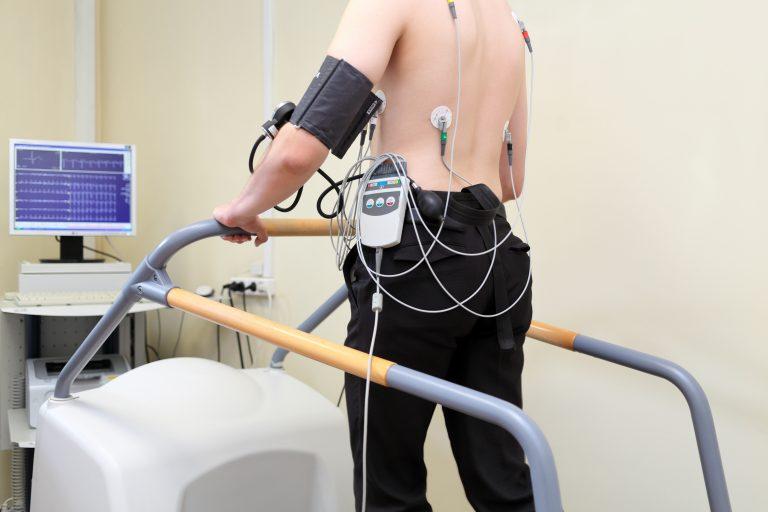When it comes to safeguarding your heart health, routine checkups and timely diagnostic tests play a vital role. With rising stress levels, sedentary work habits, and changing lifestyles, heart-related concerns are becoming increasingly common—especially in bustling metro cities. If you’ve been searching for clear, practical information about cardiac fitness assessments, including the tmt test bangalore options available, this comprehensive guide from ecotown will help you make informed decisions with confidence.
Whether you’re preparing for a checkup, experiencing symptoms, or simply aiming to evaluate your fitness levels, understanding the TMT (Treadmill Test) is a valuable step toward heart-healthy living.
What Is a TMT Test?
A TMT (Treadmill Test), also known as a stress test, measures how your heart performs when subjected to physical activity. Since cardiac issues often surface during exertion, this test helps doctors evaluate how the heart responds to increased workload.
What the Test Measures
- Blood pressure changes
- Heart rhythm stability
- Oxygen consumption
- Electrical activity of the heart (via continuous ECG monitoring)
- Symptoms like chest discomfort, breathlessness, or fatigue
This test is widely recommended for individuals who want a clear picture of their cardiovascular health, especially those with lifestyle risk factors.
Why You Should Consider a TMT Test
A TMT test is essential for detecting hidden heart issues before they escalate. It’s often prescribed for individuals who:
- Have a family history of heart disease
- Experience unexplained chest pain
- Have high blood pressure or diabetes
- Are preparing for strenuous physical activities
- Lead busy, high-stress lifestyles
- Want to track heart performance during exercise
If you’re exploring reliable options for a tmt test bangalore, understanding its purpose and benefits ensures that you approach your heart checkup with clarity.
How the TMT Test Works
A TMT test is performed under medical supervision and follows a structured process. Here’s what you can expect during the procedure:
1. Pre-Test Evaluation
The doctor begins by reviewing your medical history and current health condition. Baseline vitals such as blood pressure, pulse rate, and resting ECG are recorded.
2. The Treadmill Phase
You will walk on a treadmill that gradually increases in speed and incline. The test typically progresses through multiple stages, each lasting about three minutes.
During the test, the medical team monitors:
- Heart rate fluctuations
- ECG patterns
- Physical symptoms such as fatigue
- Blood pressure variations
3. Post-Test Analysis
After completing the test, you will enter a cool-down phase where your vitals are continuously monitored. The doctor then evaluates the collected data to assess your heart’s condition.
Benefits of Getting a TMT Test
A TMT test offers multiple advantages for individuals who want to stay proactive about their heart health.
Early Detection of Heart Problems
Heart diseases often progress silently. A TMT test can reveal concerns such as:
- Blocked arteries
- Abnormal heart rhythms
- Insufficient blood flow
- Exercise-induced cardiac irregularities
Helps in Fitness Planning
For those planning intense workouts or athletic training, the TMT test acts as a safety clearance to prevent exertion-related complications.
Monitors Existing Heart Conditions
People diagnosed with cardiac issues benefit from periodic TMT tests to track recovery, response to medication, and treatment progress.
Supports Lifestyle Modification
Based on results, doctors can recommend:
- Diet improvements
- Exercise adjustments
- Stress-management techniques
- Regular monitoring schedules
This ensures that your heart health journey is customized to your needs and capabilities.
TMT Test in Urban Cities: Why It Matters
Cities with fast-paced lifestyles often expose residents to higher heart-related risks due to:
- High stress levels
- Long working hours
- Irregular meals
- Limited physical activity
- Pollution
- Sleep disturbances
This is why many individuals prefer getting a tmt test bangalore as part of their annual or semi-annual health assessment. Early evaluation helps reduce long-term risks and provides reassurance for those maintaining demanding professional routines.
Preparing for Your TMT Test
Proper preparation ensures smooth testing and accurate results. Here’s how you can get ready:
What to Wear
- Comfortable clothing
- Sport shoes suitable for walking
- Light cotton fabrics
Food & Drink Guidelines
- Avoid heavy meals 2–3 hours before the test
- Stay hydrated
- Avoid caffeinated beverages
Medication
Your doctor may ask you to pause certain medications temporarily. Always consult before making changes.
General Tips
- Get adequate sleep the previous night
- Arrive early for pre-test procedures
- Inform the medical team about any discomfort during the test
Being prepared ensures better results and reduces any anxiety you may have before the procedure.
Choosing the Right Diagnostic Centre
Selecting the right facility is essential to ensure accurate results and a comfortable testing experience. When searching for a tmt test bangalore, consider these factors:
1. Experienced Medical Professionals
A qualified cardiologist ensures safe and effective administration of the test.
2. Advanced Equipment
Modern ECG systems and calibrated treadmills help deliver precise results.
3. Clean, Comfortable Environment
A hygienic, patient-friendly setup enhances your overall experience.
4. Transparent Pricing
Choose a diagnostic centre that offers clear pricing with no hidden fees.
5. Post-Test Consultation
A detailed explanation of results helps you understand your next steps.
ecotown emphasizes transparency, safety, and professional care in all cardiac evaluations—helping you make well-informed decisions without stress or confusion.
Common Myths About the TMT Test
Myth 1: The test is too strenuous for most people.
Fact: The test is supervised and stops immediately if any discomfort arises.
Myth 2: Only people with chest pain need a TMT test.
Fact: It’s also ideal for preventive care, fitness assessments, and high-risk individuals.
Myth 3: TMT is painful.
Fact: The test involves walking and mild jogging; it’s non-invasive and safe.
Myth 4: It guarantees 100% diagnosis of heart diseases.
Fact: TMT is a strong indicator but works best when combined with other cardiac evaluations.
When You Should Get a TMT Test Done
You should consider scheduling a TMT test if you experience:
- Frequent breathlessness
- Irregular heartbeats
- Pain or tightness in the chest
- Unusual fatigue during daily activities
Additionally, individuals above 35 years with a sedentary lifestyle or stressful job environment often include a tmt test bangalore in their routine health checkup plan.
Those starting new workout programs—especially high-intensity routines—should also consult a cardiologist and undergo necessary evaluations for safety.
Example Scenarios Where a TMT Test Helps
Scenario 1: Working Professional
A 40-year-old executive with long hours, high stress, and limited exercise wants to ensure his heart is functioning well. A TMT test helps him detect early issues and adjust his lifestyle.
Scenario 2: Fitness Enthusiast
Someone preparing for a marathon uses a TMT test to check whether their heart can handle increased exertion.
Scenario 3: Chronic Health Conditions
Individuals with diabetes or hypertension undergo periodic TMT tests to monitor heart performance and avoid complications.
These examples show how diverse groups benefit from regular cardiac evaluations, including many who opt for a tmt test bangalore for preventive care.
Conclusion
Taking charge of your heart health is one of the most important decisions you can make. Whether you're experiencing specific symptoms or simply want peace of mind, a TMT test offers valuable insights into your cardiovascular fitness. With the rising demands of modern lifestyles, ensuring regular assessments—such as the tmt test bangalore options available through trusted providers like ecotown—helps you stay informed, protected, and confident about your wellbeing.
Your heart works tirelessly for you. Investing a little time and attention in its care goes a long way toward leading a healthier, more energetic life.
FAQs
1. Is the TMT test safe for first-time patients?
Yes, the test is conducted under expert supervision, making it safe even for beginners.
2. How long does a TMT test usually take?
On average, the entire process—including preparation and cool-down—takes about 30–45 minutes.
3. Can I take my regular medicines on the test day?
You may need to pause certain medications. Always follow your doctor’s instructions beforehand.
4. What happens if I feel uncomfortable during the test?
The test is stopped immediately, and your vitals are checked before proceeding further.
5. Do I get instant results after the TMT test?
Most centres provide same-day results, along with a detailed consultation explaining your heart performance.

